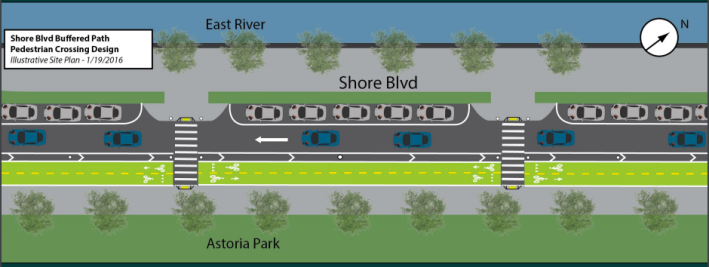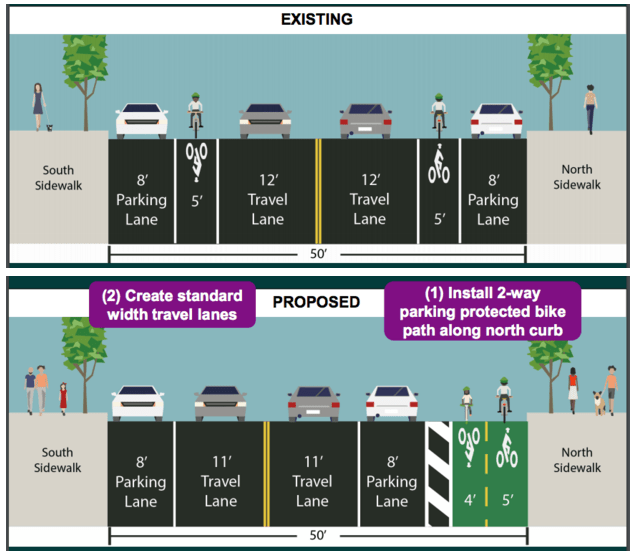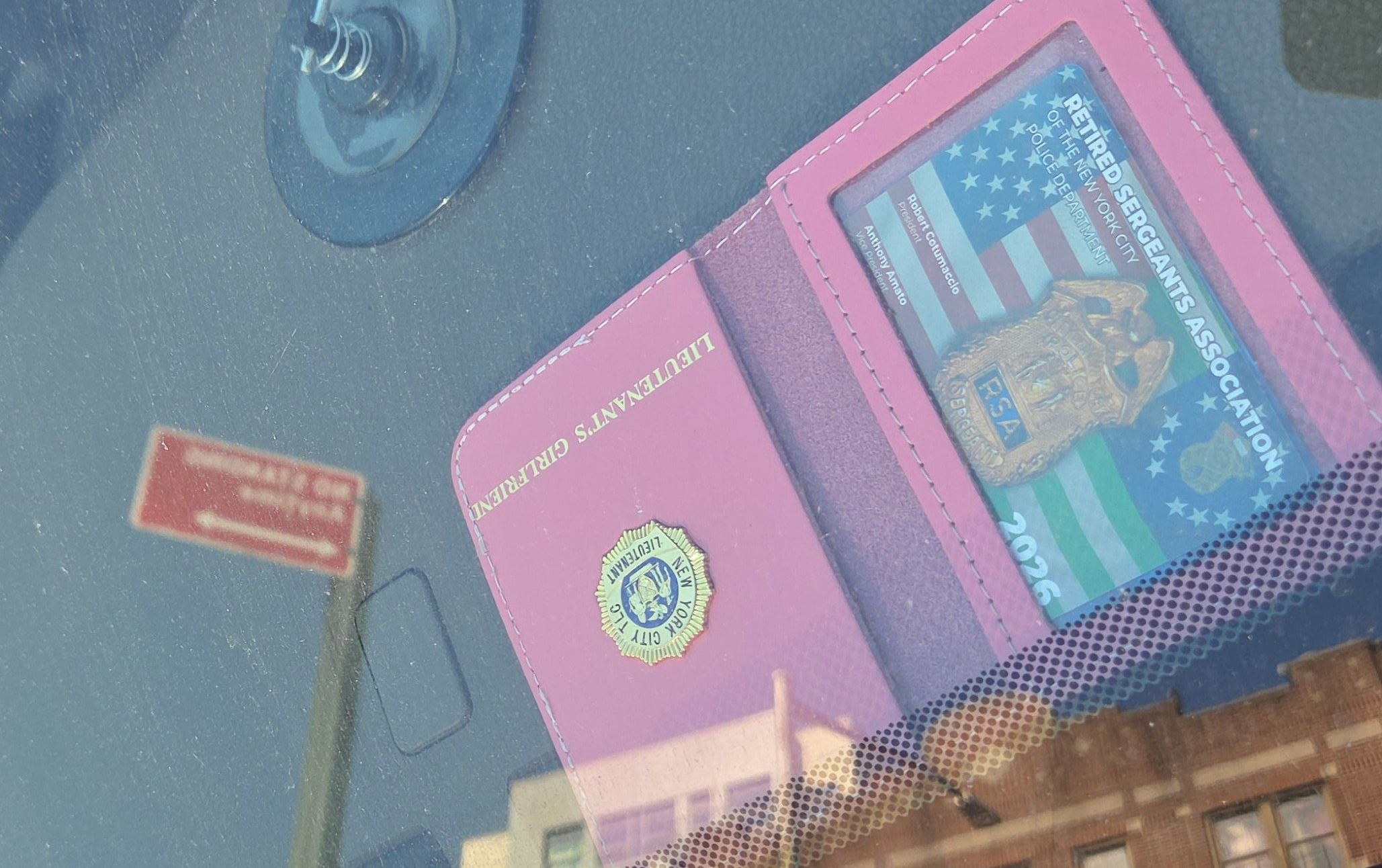
Last June, a hit-and-run driver killed 21-year-old Betty DiBiaso at the intersection of 19th Street and Ditmars Boulevard, next to Astoria Park. The loss of DiBiaso prompted a neighborhood-wide discussion about the need to improve street safety around one of Queens’ most visited parks, and on Tuesday night DOT showed Queens Community Board 2 its proposals for the area [PDF].
Despite all the pedestrian and bike traffic, streets near the park lack basic traffic-calming features and safe access for people walking or biking. Since 2009, more than a hundred people have been injured on streets around the park.
The plan DOT showed Tuesday calls for major changes to sections of Shore Boulevard, 20th Avenue, and Hoyt Avenue, with new two-way protected bike lanes on those streets. Separately, DOT is studying a number of other possible improvements for the area, including daylighting intersections and improving pedestrian crossings around the park’s borders and adding speed bumps by the intersection where DiBiaso was killed.

Shore Boulevard divides the park from the East River waterfront. There's currently a sidewalk-level path for biking and walking next to the park, but it's too narrow for people to use comfortably. DOT's project would create more room for pedestrians and cyclists by shifting the bikeway into the street, replacing the east-bound travel lane, and adding curb extensions on the river side of the street to shorten pedestrian crossings.
Another option for Shore Boulevard -- supported by local Assembly Member Aravella Simotas -- was to make it car-free, but DOT rejected the idea in the fall after it encountered some opposition from local car owners.
Also in line for a two-way protected lane is 20th Avenue between Shore Boulevard and 37th Street, where there are currently painted bike lanes. The redesign will calm traffic by narrowing what are currently 12-foot motor vehicle lanes.
And on a few blocks of Hoyt Avenue North connecting the park to the Triborough Bridge path, a one-way buffered bike lane would be converted to a two-way protected lane. The bike lane would be shifted to the south side of the street to eliminate conflicts with buses. One motor vehicle lane would be removed, reducing speeding and shortening crossing distances for pedestrians.
Council Member Costa Constantinides, who requested DOT’s initial traffic-calming study, told Streetsblog he was pleased with the proposal. “ This plan is a strong first step forward in improving traffic safety around the jewel of our community- Astoria Park,” Constantinides said. DNAinfo reports that the board is still discussing the proposals with DOT and has not yet scheduled a vote.





